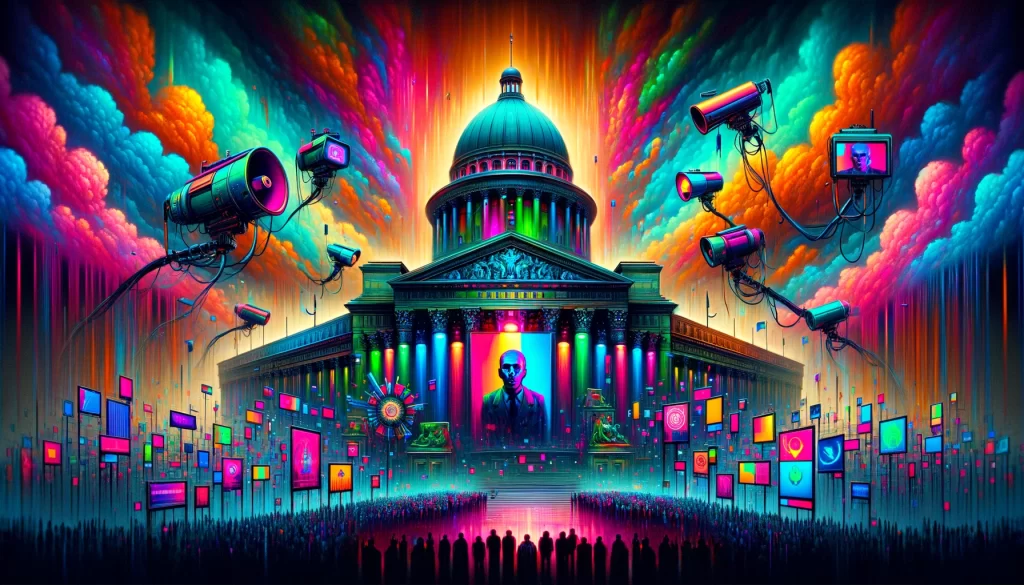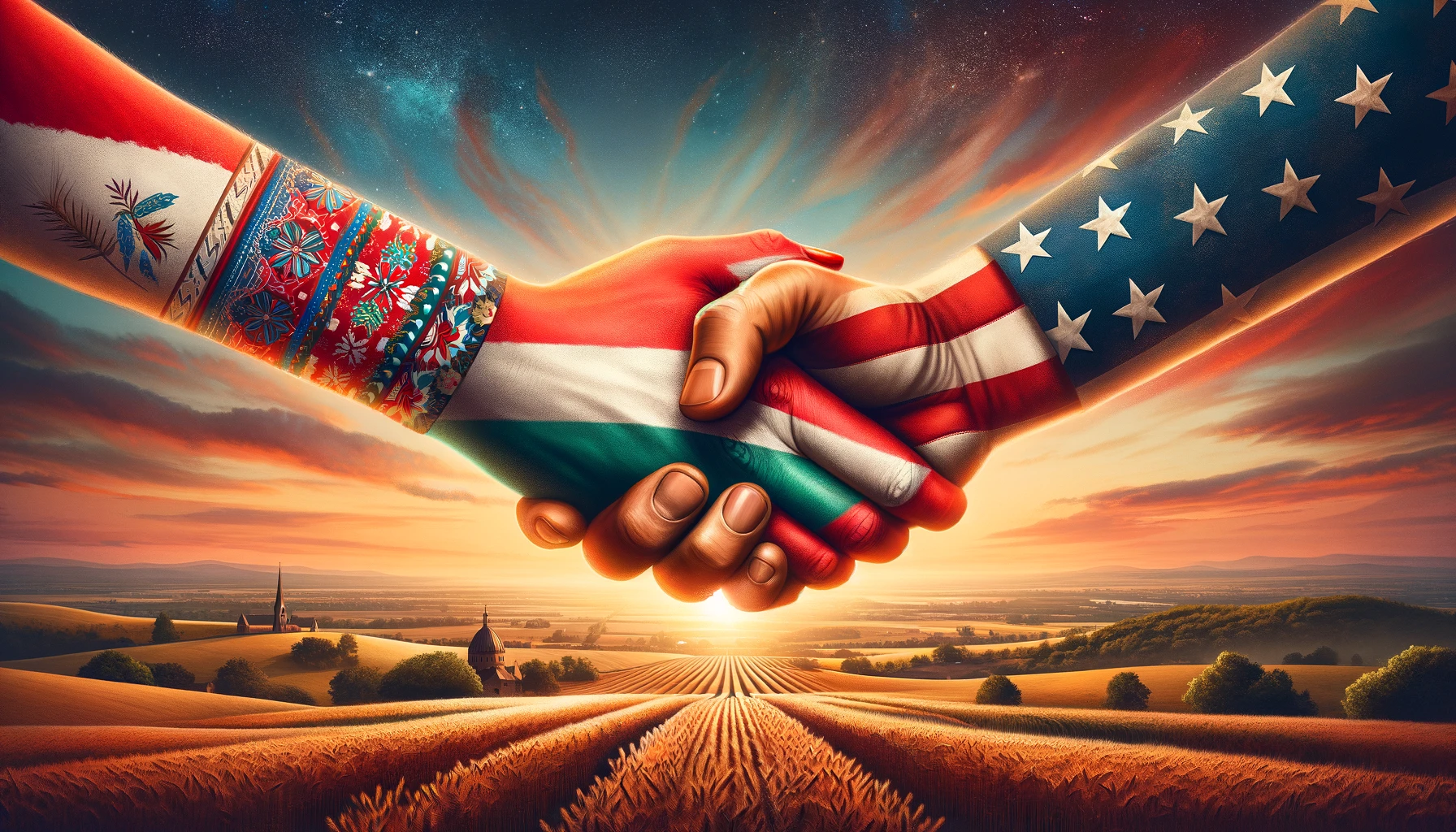Let’s dive into a world that feels straight out of a movie, but is very much real. Picture two leaders, Viktor Orbán from Hungary and former U.S. President Donald Trump, meeting at a luxurious resort, shaking hands, and sharing thoughts. This scenario is brought to life through the eyes of Gábor Scheiring, a Harvard scholar and former Hungarian politician, who guides us through the intertwining paths of these two influential figures and their impact on the essence of democracy in an opinion piece published by Common Dreams (https://www.commondreams.org/opinion/orban-trump-democracy-fascism). The following is the gist of it.
In 2010, Viktor Orbán stepped into the role of Hungary’s prime minister, steering the country onto a path quite unlike its previous course. Orbán’s leadership saw Hungary transforming into what he boldly labels an “illiberal state,” distancing itself from the democratic values cherished by many. Around the same era, Donald Trump made his transition from businessman to politician, becoming the President of the United States, and his leadership style drew comparisons to Orbán’s.
Scheiring noted a peculiar aspect of these leaders: their power didn’t solely come from their political positions or the laws they enacted but from the diverse groups of supporters they managed to unite. A novel coalition that reshaped political support in ways previously unseen.
During a meeting, Trump complimented Orbán, saying, “You’re respected all over Europe. Probably, like me, a little bit controversial, but that’s OK. You’ve done a good job and you’ve kept your country safe.” This exchange highlights the mutual admiration and similarity in their controversial yet influential standings.
Scheiring’s political journey began filled with hope and ambition. Elected to the Hungarian Parliament as part of the Green Party, he aspired to bring about change. However, he soon encountered the challenges posed by Orbán’s governance, which exerted control in manners that stifled opposition voices. The government’s dominance over media, manipulation of electoral districts, and appointment of loyalists to key legal positions were strategies used to cement their power, avoiding the need for outright aggression.

This narrative bears a striking resemblance to the shifts observed during Trump’s presidency in the U.S., where the Republican Party increasingly embraced his unorthodox leadership approach, challenging democratic traditions. Trump’s quip about wanting to be a dictator for a day, and the alarming support it received, underscored this transformation.
Orbán and Trump exemplify how democracy can be subtly undermined from within. Instead of dramatic coups, they employed laws, policies, and media control to tilt the playing field in their favor, making it difficult for the opposition to mount an effective challenge.
Scheiring posits that the appeal of such leaders stems from societal divisions. When individuals feel economically marginalized or culturally threatened, they gravitate towards figures who promise solutions, often at the expense of democratic norms. Orbán and Trump succeeded in attracting these individuals by presenting themselves as alternatives to the status quo.
Historically, parties advocating for social welfare and equality attracted those concerned about their economic prospects. Yet, when such parties appear to overlook the plights of the common people, it paves the way for leaders like Orbán and Trump. In Hungary, the shift towards authoritarianism began in economically distressed regions well before Orbán’s rise to power. A similar trend is observable in the U.S., where the Republican Party has emerged as the voice for working-class Americans who feel neglected.
Ending on a cautiously optimistic note, Scheiring suggests that while the ascent of authoritarian populism may seem daunting, there is still an opportunity to learn from these instances and strive for a more inclusive and democratic society.
This article is based on the following article:
https://www.commondreams.org/opinion/orban-trump-democracy-fascism

Background Information
Enhancing understanding of these concepts helps the reader grasp the complex dynamics of contemporary political leadership and the challenges facing democracies today. It underscores the importance of vigilance, informed engagement, and the defense of democratic principles in maintaining healthy, inclusive societies.
Viktor Orbán and Hungary:
- Viktor Orbán: Since becoming Prime Minister of Hungary in 2010, Orbán has implemented policies that centralize power and control. He’s a member of the Fidesz party, which has a nationalist and conservative ideology. Orbán’s government is often criticized for undermining the independence of the judiciary, restricting freedom of the press, and limiting the rights of minorities and opposition groups.
- Hungary’s Political Shift: Hungary’s shift towards illiberal democracy is significant because it represents a departure from the democratic ideals and practices expected in the European Union, of which Hungary is a member. This shift includes altering the constitution to favor the ruling party, controlling public media to broadcast government-friendly content, and manipulating electoral laws to disadvantage opposition parties.
Donald Trump and the United States:
- Donald Trump’s Presidency: Trump’s leadership was marked by his direct communication style, often using social media to address the public and bypass traditional media. His presidency saw significant policy changes on immigration, environmental regulations, and foreign policy. Trump’s approach to governance, like challenging the legitimacy of the electoral process, has sparked debates about the resilience of democratic institutions in the U.S.
- Political Division: The U.S. experienced heightened political polarization during and after Trump’s presidency. This division is characterized by differing views on economic policies, racial justice, healthcare, and the role of government in individuals’ lives.
Illiberal Democracy and Authoritarianism:
- Characteristics of Illiberal Democracies: While these governments maintain the appearance of democracy through elections, they often manipulate the electoral process and restrict political pluralism. Civil liberties, such as freedom of speech and the right to protest, are under threat, and the separation of powers is weakened.
- Authoritarian Governance: Authoritarian regimes rely on the concentration of power in the hands of a single leader or a small group. These regimes often justify their consolidation of power by claiming to ensure national security, maintain social order, or protect traditional values. They may use propaganda, censorship, and the suppression of dissent to maintain control.
Populism and Its Appeal:
- Populist Leaders: Populists claim to represent the “true” people against a corrupt elite. They often use rhetoric that divides society into two groups: the pure people and the corrupt elite. Populist leaders across the globe have gained support by promising to challenge the status quo and address the concerns of those who feel neglected by the political and economic systems.
- Impact of Populism: While populism can energize political engagement and bring attention to legitimate grievances, it can also lead to the erosion of democratic norms and institutions when leaders seek to consolidate power by undermining checks and balances.
Economic and Cultural Threats, Gerrymandering, and Media Control:
- Responding to Threats: Leaders like Orbán and Trump have tapped into fears about economic dislocation and cultural change, promising to protect jobs, limit immigration, and preserve national identity. This approach has resonated with voters who feel left behind by globalization and ignored by political elites.
- Manipulating Democracy: Gerrymandering and media control are tools used by some leaders to shape political outcomes in their favor. By drawing electoral districts to benefit one party, leaders can skew representation. Controlling the media allows governments to influence public opinion, marginalize opposition voices, and shape the narrative around policy decisions and national events.

Suggested Debate/Essay Questions
- Is the Rise of Leaders like Orbán and Trump a Symptom or Cause of Democratic Erosion?
- Does Populism Pose an Inherent Threat to Democratic Institutions?
- Is Media Control More Damaging to Democracy Than Electoral Manipulation?
- Do Economic Inequalities Contribute to the Rise of Authoritarian Populism?
- Can a Democracy Safeguard Against the Rise of Illiberal Leaders Without Compromising Free Speech?
Please subscribe to Insight Fortnight, our biweekly newsletter!

👍